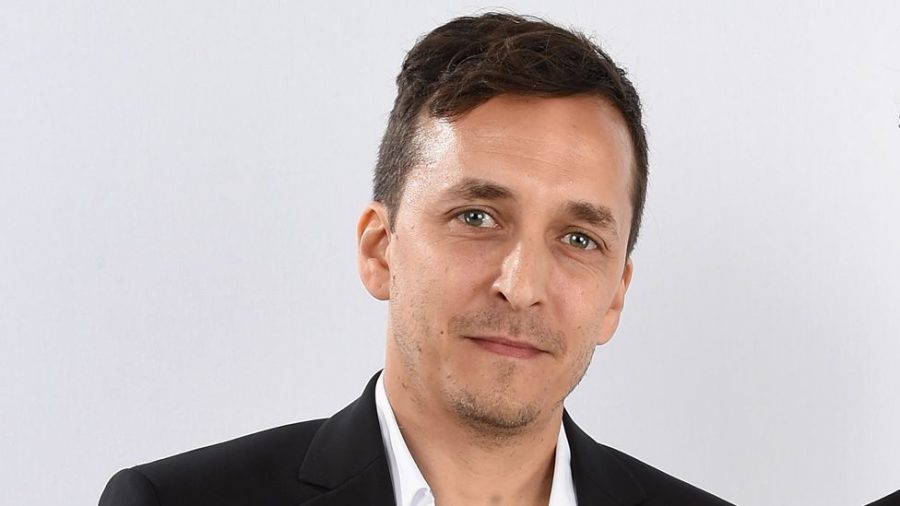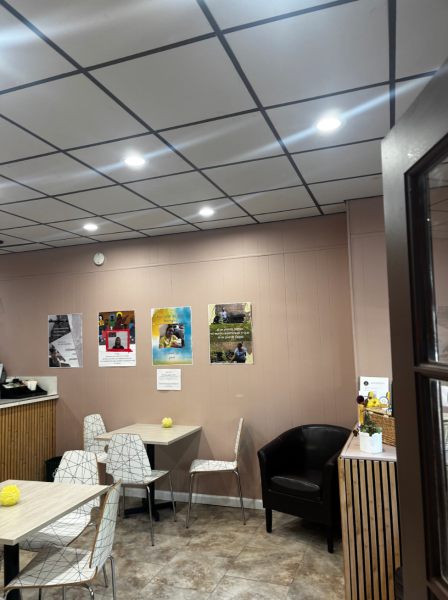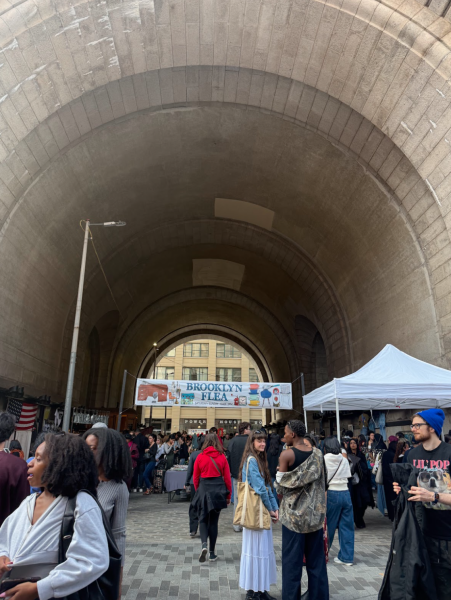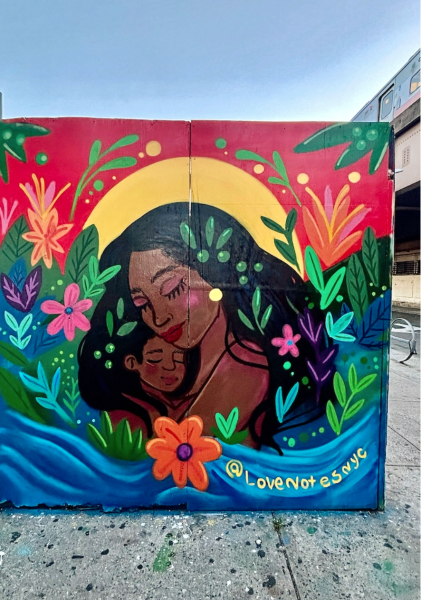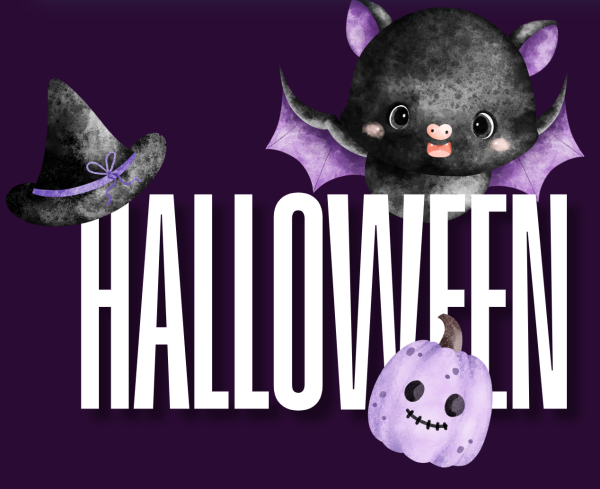Reporter’s Death Shows Importance of Freelance Journalism
Brent Renaud was a US journalist who won a Peabody Award for his journalism in 2015. (Courtesy of Twitter)
Brent Renaud was a freelance journalist from America that was killed outside of Kyiv, Ukraine, while reporting on Ukrainian refugees. He was known for going into conflict-saturated areas and illuminating the resulting humanitarian crises within those countries and situations. His death revealed not only the dangers of freelance journalism, but also how necessary reporting is to unearthing injustices.
Renaud and his brother Craig formed a team, creating award-winning documentaries about humanitarian issues including the wars in Afghanistan and Iraq, the earthquake in Haiti, the homelessness and drug crisis in America and immigration in South and Central America with a focus on the human experience. Renaud’s most recent project was reporting on the Ukraine refugee crisis in light of the Russian invasion of Ukraine from the suburbs around Kyiv, where he was speaking to affected families and those fleeing the country. He had been driving through Irpin with another documentary filmmaker, Juan Arredondo, when they passed through a Russian checkpoint. Suddenly, Russian troops opened fire on the vehicle, killing Renaud badly injuring Arredondo.
Renaud had not been on an assignment with any official publication or government organization when he was killed in Ukraine, emphasizing Renaud’s personal sacrifice and dedication to exposing injustice. Ukrainian President Volodymyr Zelensky applauded the “talented and brave journalist” and thanked him for his “commitment to the values of compassion, ethics and justice.” Renaud’s death exposed the dangers that freelance journalists face without the protection of official organizations, as well as the necessity of their reporting.
Sebastian Junger wrote about Renaud’s life spent helping vulnerable communities through journalism. He explained the dangers of freelancing when reporting on these kinds of issues: “Journalists have always taken risks to get their stories … but freelancers like Renaud are particularly vulnerable.” He continued, “Established news organizations can’t possibly maintain enough salaried staff in the field to keep pace with world events, and no one — from hotshot TV reporters to gritty freelancers — can work safely and efficiently without the help of local journalists.” While freelance work is often some of the most dangerous, it is extremely necessary, as freelancers can do things larger organizations cannot.
Official publications and organizations often have better access to security than freelancers. Janine Zacharia highlighted the dangers of reporting, especially for freelancers not working under an organization, in her interview with Stanford News. Speaking from experience, she said, “When I reported in the Middle East in the 1990s and 2000s, we would write ‘TV’ on the car windows with masking tape to deter attacks on our vehicle. Around early 2012, it started becoming clear that being a journalist was no longer a form of protection. Oftentimes, it was a liability.” She gave examples of James Foley, the American journalist killed by ISIS in 2014, Marie Colvin, Sunday Times journalist killed by Bashar al-Assad in 2012 as well as Brent Renaud to show the hazards of reporting on political and humanitarian issues.
Another journalist mentioned in Zacharia’s interview was Anthony Shadid, who died while reporting in Syria in 2012. He was on assignment with the New York Times when he suffered a fatal asthma attack. Getting into the country was already a dangerous task, as Shadid arranged his trip “through a network of smugglers” in fear of being caught by the Syrian government and pro-government groups as “The Syrian government, which tightly controls foreign journalists’ activities in the country, had not been informed of his assignment by The Times.” Shadid’s death shows the dangers of reporting in war-torn areas — even with the protection and resources of an official publication organization like the New York Times. However, without the reporting of journalists like Shadid and Renaud, many humanitarian issues would not see the light of day.
Junger said, “Without the work of these brave people there could be no such thing as democracy or freedom in the world — elections would be stolen, war crimes would be denied, injustices would be hidden. In a world without journalists, leaders like Vladimir Putin could claim whatever self-serving reality they wanted and remain utterly unaccountable for their crimes.” Junger emphasizes the necessity of first-hand reporting to expose human rights and democratic violations like those suffered by the people of Ukraine at the hands of the Russian government.
After his friend and colleague died in the field, Junger started an organization called Reporters Instructed in Saving Colleagues, which taught journalists basic medical training that they might need in the field. During a course taught to Ukrainian journalists when fighting began in the Donbas region, one of the journalists said, “We are going to teach all of our friends what we are learning here from you … because we know there is going to be a war.”
Junger’s predictions for the casualties of the war on Ukraine are bleak: “If this war unfolds in the same way as the Bosnian civil war, with cities getting shelled for months or years on end, civilian and journalist fatalities will skyrocket. Around 38,000 civilians and 19 journalists were killed in Bosnia between 1992 and 1995.” These 19 murdered journalists were only a small portion of the around 140 journalists killed in the wars in the Balkans in the 1990s. During this time, “journalists were seen by some as enemies who reported inconvenient truths.” Without their reporting and sacrifice, however, the ethnic cleansing, forced displacement and horrific violence as a result of these wars would not have been revealed.
Renaud committed his life to helping vulnerable communities. His death is not only a tragedy that reminds us of his personal sacrifices, but also shows a grim pattern of the fate of conflict and humanitarian journalists.





































































































































































































